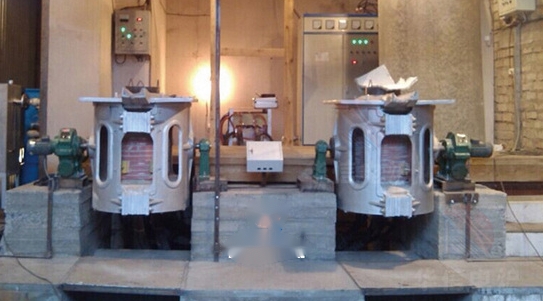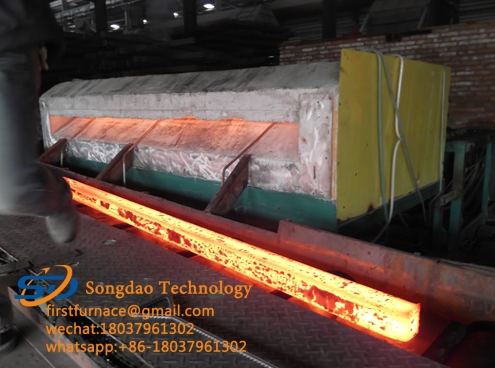- 26
- Feb
Billet production equipment
Billet production equipment
The billet refers to the use of scrap steel as raw material, after being melted in an induction melting furnace, it is poured into a simple cast iron mold, and cast into a square steel with a length of about 1 meter and a size of 50mm. The mold used is generally a reusable iron mold. The cooled billet after pouring is heated by an intermediate frequency heating furnace, and then enters the rolling mill to be rolled into profiles such as steel bar, wire rod, flat steel, angle steel, etc. Below, we will introduce the billet production equipment and production process in detail.
The steel billet is made of scrap steel, and the rolled steel is neither subjected to any analytical tests nor quality control such as temperature. More than 90% of the steel smelted by this method is unqualified products, which are outdated products that are prohibited from production and elimination by the state. product. The product diameter, tensile strength, etc. do not meet the national standards, most of the products are brittle and broken, and the quality has serious hidden dangers.
Small billet production equipment generally uses a 1-ton intermediate frequency furnace to melt scrap steel, which can produce about ten tons of billets per day. After the billet is cooled, it is taken out from the steel mold, and the two ends are cut off with a cutting machine. After finishing, it is sent to the rolling mill for rolling.
The rolling mill then heats these billets in an intermediate frequency heating furnace and then feeds them into the rolling mill for rolling into wire rods or profiles.
Billet production equipment: intermediate frequency melting furnace, steel mold, rolling mill
Heating power of intermediate frequency furnace: 750Kw
Incoming line voltage of intermediate frequency furnace: 380V
Rated capacity of intermediate frequency furnace: 1000Kg
Mould: 45*45*1200mm
Mill: 6-high mill


